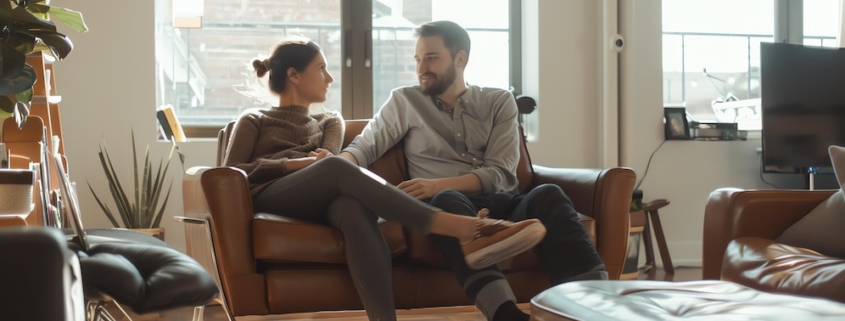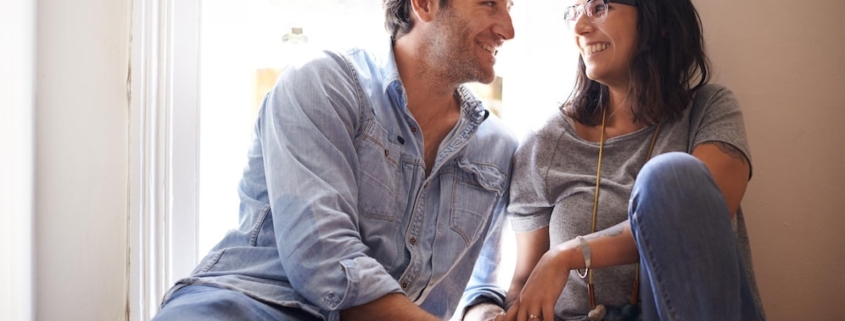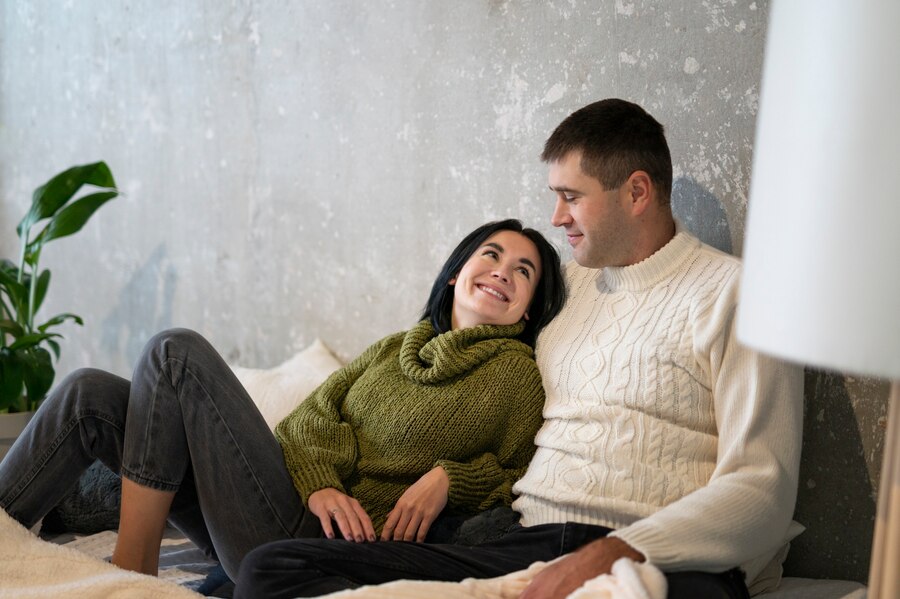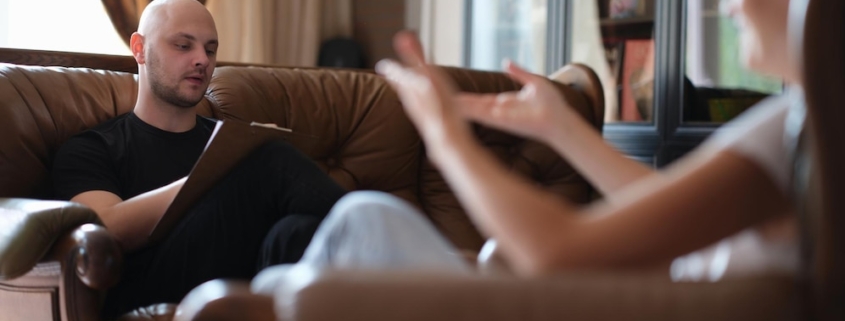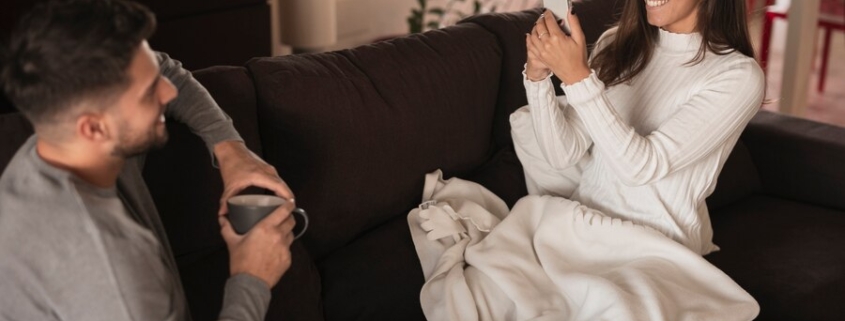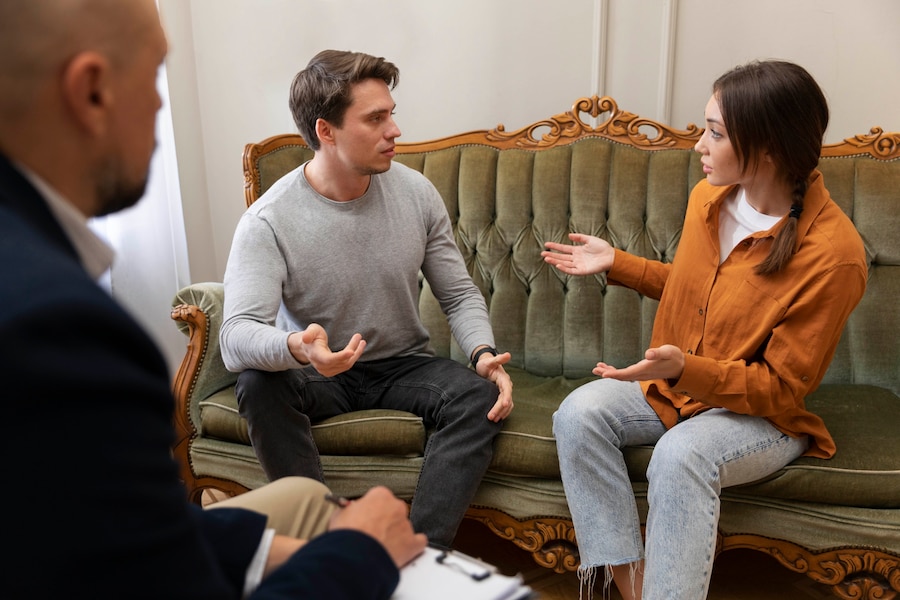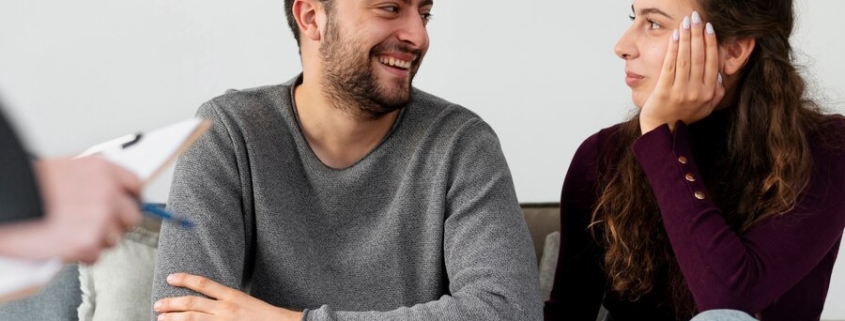In today’s fast-paced world, maintaining a healthy and fulfilling relationship can be challenging, especially when both partners are grappling with addiction or substance abuse. These issues not only strain the individuals involved but can also erode the very foundation of their relationship. It’s in these moments of struggle that seeking help becomes not just an option, but a necessity. Couples rehab programs offer a beacon of hope, providing a structured, supportive environment where both partners can work together towards recovery and a stronger bond.
“Break Free Together: Couples Rehab – Your Journey to a Healthier Relationship” delves into the transformative power of couples rehab, exploring how these specialized programs can reignite the spark in relationships tarnished by addiction. This article aims to shed light on the intricacies of couples rehab, from understanding its core principles to navigating the stages of recovery and beyond. By embracing the journey together, couples can not only overcome addiction but also cultivate a deeper, more resilient connection.
As we embark on this exploration, we’ll uncover the unique benefits of Couples Rehab in Orange County, outline the step-by-step process involved, and provide actionable strategies for maintaining a healthier relationship post-rehab. Whether you’re considering this path for yourself and your partner or seeking to understand it better, this comprehensive guide will equip you with the knowledge and inspiration needed to break free together and build a brighter future.
Couples Rehab Services
Understanding Couples Rehab
Couples rehab is a specialized form of rehabilitation designed to address substance abuse and addiction within the context of a romantic relationship. This approach recognizes that addiction often affects not just the individual but also their partner and the dynamics of their relationship. By focusing on both partners simultaneously, couples rehab aims to foster a healthier, more supportive environment that can be instrumental in the recovery process.
Definition and Purpose
At its core, couples rehab is a comprehensive treatment program tailored for couples struggling with substance abuse issues. Unlike traditional rehab programs that treat individuals separately, couples rehab provides a collaborative setting where both partners can work on their recovery together. The purpose of this approach is twofold: to help each individual overcome their addiction and to strengthen the relationship by addressing the underlying issues that may have contributed to the substance abuse.
Benefits for Relationships
One of the primary benefits of couples rehab is its focus on improving the relationship while simultaneously tackling addiction. This dual approach can lead to a range of positive outcomes, including:
- Enhanced Communication: Open and honest communication is a cornerstone of any healthy relationship. Couples rehab offers various therapeutic techniques that encourage partners to express their feelings, fears, and expectations in a constructive manner.
- Mutual Support: Going through rehab together allows couples to support each other emotionally and physically. This mutual support can be a powerful motivator and can significantly increase the chances of successful recovery for both partners.
- Shared Goals: By setting and working towards common goals, couples can strengthen their bond and develop a sense of teamwork. This collaborative effort can make the recovery process more manageable and less isolating.
- Conflict Resolution: Many couples struggle with unresolved conflicts that can exacerbate substance abuse issues. Couples rehab addresses these conflicts head-on, providing tools and strategies for effective conflict resolution and healthier interactions.
Common Issues Addressed
Couples rehab is designed to tackle a variety of issues that can contribute to substance abuse and strain a relationship. Some of the most common issues addressed in couples rehab include:
- Codependency: When one partner is overly reliant on the other for emotional or physical support, it can create an unhealthy dynamic known as codependency. Couples rehab helps partners recognize and address these patterns, fostering a more balanced and supportive relationship.
- Trust Issues: Addiction often leads to broken promises and betrayal, which can severely damage trust in a relationship. Couples rehab provides a safe space for partners to rebuild trust through accountability and transparent communication.
- Emotional Trauma: Many individuals turn to substances as a way to cope with emotional trauma. Couples rehab addresses these underlying traumas, helping both partners heal and develop healthier coping mechanisms.
- Enabling Behaviors: Partners may unintentionally enable each other’s addiction through certain behaviors, such as making excuses or covering up for each other. Couples rehab identifies and modifies these enabling behaviors to support sobriety.
By understanding the definition, purpose, benefits, and common issues addressed in couples rehab, couples can better appreciate the transformative potential of this specialized treatment. It offers a unique opportunity to break free from the cycle of addiction together, paving the way for a healthier, more fulfilling relationship.
The Rehab Process
Embarking on a couples rehab journey is a significant step towards healing and rejuvenating your relationship. The process is meticulously designed to address both individual and collective issues, guiding couples towards a healthier lifestyle and a stronger bond. Here is a comprehensive look at the various stages involved in the rehab process:
Initial Assessment
The journey begins with an in-depth initial assessment, where both partners undergo a thorough evaluation. This step is crucial for understanding the unique dynamics of the relationship, individual histories, and specific challenges each partner faces. The assessment typically includes:
- Personal Interviews: Conducted with each partner to understand their perspectives, struggles, and goals.
- Medical and Psychological Evaluation: To identify any underlying conditions that may need attention during the rehab process.
- Relationship Assessment: Analyzing the interaction patterns, communication styles, and areas of conflict that need to be addressed.
This comprehensive assessment forms the foundation for creating a tailored treatment plan that meets the unique needs of both individuals and their relationship.
Customized Treatment Plans
Based on the insights gained from the initial assessment, a customized treatment plan is developed for the couple. This plan is designed to address the specific issues identified and to help both partners work towards mutual goals. Key components of the treatment plan may include:
- Individual Therapy: Allowing each partner to focus on personal growth and healing.
- Couples Therapy: Focused on improving communication, resolving conflicts, and rebuilding trust.
- Group Therapy: Providing a supportive environment where couples can share experiences and learn from others facing similar challenges.
- Holistic Treatments: Incorporating activities such as yoga, meditation, and exercise to promote overall well-being.
The customized treatment plan is dynamic and may be adjusted as the couple progresses through their rehab journey, ensuring that it remains effective and relevant.
Therapeutic Techniques
Various therapeutic techniques are employed throughout the rehab process to address both individual and relational issues. Some of the key techniques include:
- Cognitive Behavioral Therapy (CBT): Helps individuals identify and change negative thought patterns and behaviors that contribute to their issues.
- Emotionally Focused Therapy (EFT): Aims to strengthen emotional bonds by addressing the underlying emotional needs and building a secure attachment between partners.
- Motivational Interviewing (MI): Encourages individuals to explore and resolve ambivalence towards change, fostering intrinsic motivation for recovery.
- Family Therapy: Involving family members to address broader relational dynamics and to build a supportive home environment.
These therapeutic techniques are integrated into the treatment plan based on the couple’s specific needs, ensuring a holistic approach to healing and recovery.
The rehab process is a journey of self-discovery, mutual support, and relationship rejuvenation. By addressing individual and collective issues through a structured and supportive framework, couples can break free from their struggles and build a healthier, more fulfilling relationship.

Post-Rehab Strategies
Completing a couples rehab program is a monumental achievement, marking the start of a new chapter in your relationship. However, the journey doesn’t end when you leave the rehab facility. Maintaining the progress you’ve made requires ongoing effort and commitment. Here are crucial post-rehab strategies to help you and your partner continue to thrive:
Maintaining Sobriety
One of the most critical aspects of post-rehab life is maintaining sobriety. Both partners must be vigilant in their efforts to stay substance-free. Here are some strategies to help:
- Regular Check-ins: Schedule regular check-ins with each other to discuss your progress, challenges, and feelings. This helps in identifying any triggers or stressors that might tempt you to relapse.
- Continued Therapy: Engage in ongoing individual and couples therapy sessions. Professional support can provide you with tools to handle stress and avoid relapse.
- Support Groups: Join support groups like Alcoholics Anonymous (AA) or Narcotics Anonymous (NA) that offer a sense of community and accountability. Some groups even cater specifically to couples, providing a shared experience and mutual support.
- Healthy Lifestyle: Embrace a healthy lifestyle by incorporating exercise, balanced nutrition, and adequate sleep. Physical well-being significantly impacts mental health and resilience against relapse.
Strengthening Communication
Effective communication is the cornerstone of any healthy relationship, especially after going through the intense experience of rehab together. Here’s how you can enhance your communication skills:
- Active Listening: Practice active listening by giving your partner your full attention during conversations. Avoid interrupting and show empathy towards their feelings and perspectives.
- Expressing Feelings: Encourage each other to express feelings openly and honestly. Use “I” statements to communicate your emotions without blaming or criticizing your partner (e.g., “I feel anxious when…”).
- Conflict Resolution: Develop conflict resolution skills to navigate disagreements constructively. Set ground rules for arguments, such as avoiding name-calling and taking breaks if things get too heated.
- Regular Check-ins: Schedule regular check-ins to discuss the state of your relationship, celebrate successes, and address any concerns before they escalate.
Building a Support Network
A strong support network is invaluable during the post-rehab phase. Surrounding yourselves with supportive friends, family, and peers can make a significant difference in your recovery journey. Here are ways to build and maintain a support network:
- Reconnect with Loved Ones: Re-establish connections with supportive family members and friends who encourage your sobriety and relationship goals.
- Community Involvement: Get involved in community activities or volunteer work. This can provide a sense of purpose and belonging while expanding your social circle with positive influences.
- Peer Support: Engage with other couples who have gone through similar experiences. Sharing your journey with those who understand can provide mutual encouragement and inspiration.
- Professional Support: Maintain relationships with your therapists and counselors. They can offer guidance, support, and resources as you navigate post-rehab life.
Incorporating these post-rehab strategies can help you and your partner maintain the progress you’ve made, strengthen your relationship, and build a fulfilling life free from substance abuse. Remember, recovery is a continuous journey, and with mutual commitment and support, you can break free together and thrive.
Break Free Together: A Journey to Healthier Relationship
Embarking on the journey of couples rehab is a courageous and transformative step towards a healthier, more fulfilling relationship. By addressing both individual and shared challenges, couples rehab provides a unique opportunity for partners to grow together, fostering a deeper understanding and connection. The comprehensive approach—from initial assessment to post-rehab strategies—ensures that couples not only overcome their immediate struggles but also build a resilient foundation for the future.
The benefits of couples rehab extend far beyond the cessation of harmful behaviors. It cultivates an environment where open communication, mutual support, and emotional intimacy can flourish. Couples learn to navigate conflicts more effectively, develop healthier coping mechanisms, and create a shared vision for their relationship. These skills are invaluable, enabling partners to face future challenges with confidence and unity.
As you move forward on this path, remember that recovery is an ongoing process. The commitment to maintain sobriety, continuously work on communication, and nurture your support network is essential. By staying dedicated to these principles, you and your partner can enjoy a lasting, loving relationship that thrives on mutual respect and understanding.
In conclusion, couples rehab offers a lifeline for relationships in distress, providing the tools and support needed to break free from the chains of addiction and dysfunction. It’s a powerful testament to the strength of your bond and your shared desire for a better, brighter future together. Take this journey hand in hand, and discover the profound impact that healing together can have on your lives

FAQs
- FAQ: What does “Break Free Together” signify at Couples Rehab? Answer: “Break Free Together” embodies our commitment to helping couples embark on a transformative journey toward healing and cultivating a healthier relationship.
- FAQ: How does Couples Rehab’s “Break Free Together” approach differ from traditional rehab programs? Answer: “Break Free Together” at Couples Rehab focuses on the unique dynamics of couples’ relationships, offering a comprehensive approach to healing and recovery within the context of partnership.
- FAQ: Can “Break Free Together” at Couples Rehab address specific challenges within a couple’s relationship during the recovery process? Answer: Yes, our program is designed to address relationship challenges, promote effective communication, and foster a healthier dynamic as couples navigate the journey to recovery together.
- FAQ: What role does partnership and mutual support play in the “Break Free Together” program at Couples Rehab? Answer: “Break Free Together” emphasizes the importance of partnership and mutual support as couples work together to overcome obstacles and build a healthier relationship.
- FAQ: Are there specific therapies or activities included in the “Break Free Together” program at Couples Rehab? Answer: The “Break Free Together” program integrates couples therapy, relationship-building exercises, and personalized interventions to support couples on their journey to a healthier relationship.
- FAQ: Can “Break Free Together” at Couples Rehab help rebuild trust and intimacy within relationships? Answer: Yes, our program is designed to help couples rebuild trust, foster intimacy, and cultivate a stronger bond as they progress through the journey to a healthier relationship.
- FAQ: Is the “Break Free Together” program at Couples Rehab suitable for all types of relationships? Answer: Yes, the program is tailored to support couples in all types of relationships, including married couples, partners, and LGBTQ+ couples seeking to build a healthier foundation together.
- FAQ: What support is available for couples after completing the “Break Free Together” program at Couples Rehab? Answer: Couples Rehab provides ongoing support and resources to help couples maintain and strengthen the progress made during the “Break Free Together” program, empowering them to continue growing together.
- FAQ: Can individuals participate in the “Break Free Together” program at Couples Rehab without their partners? Answer: The program is designed for couples seeking recovery together, but individualized support is available to address the unique needs of each partner within the relationship.
- FAQ: How can couples begin their journey to a healthier relationship with the “Break Free Together” program at Couples Rehab? Answer: Couples can connect with Couples Rehab to learn more about the “Break Free Together” program and take the first step toward a transformative journey to a healthier relationship together.


